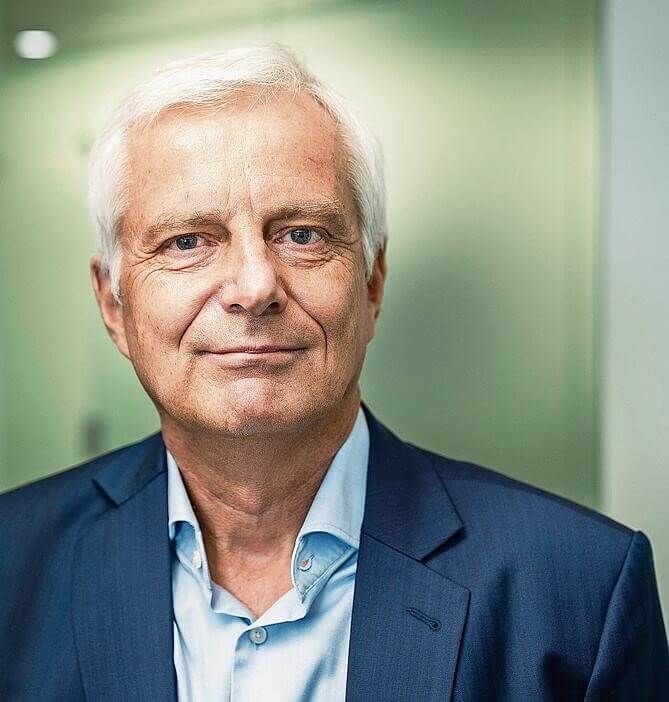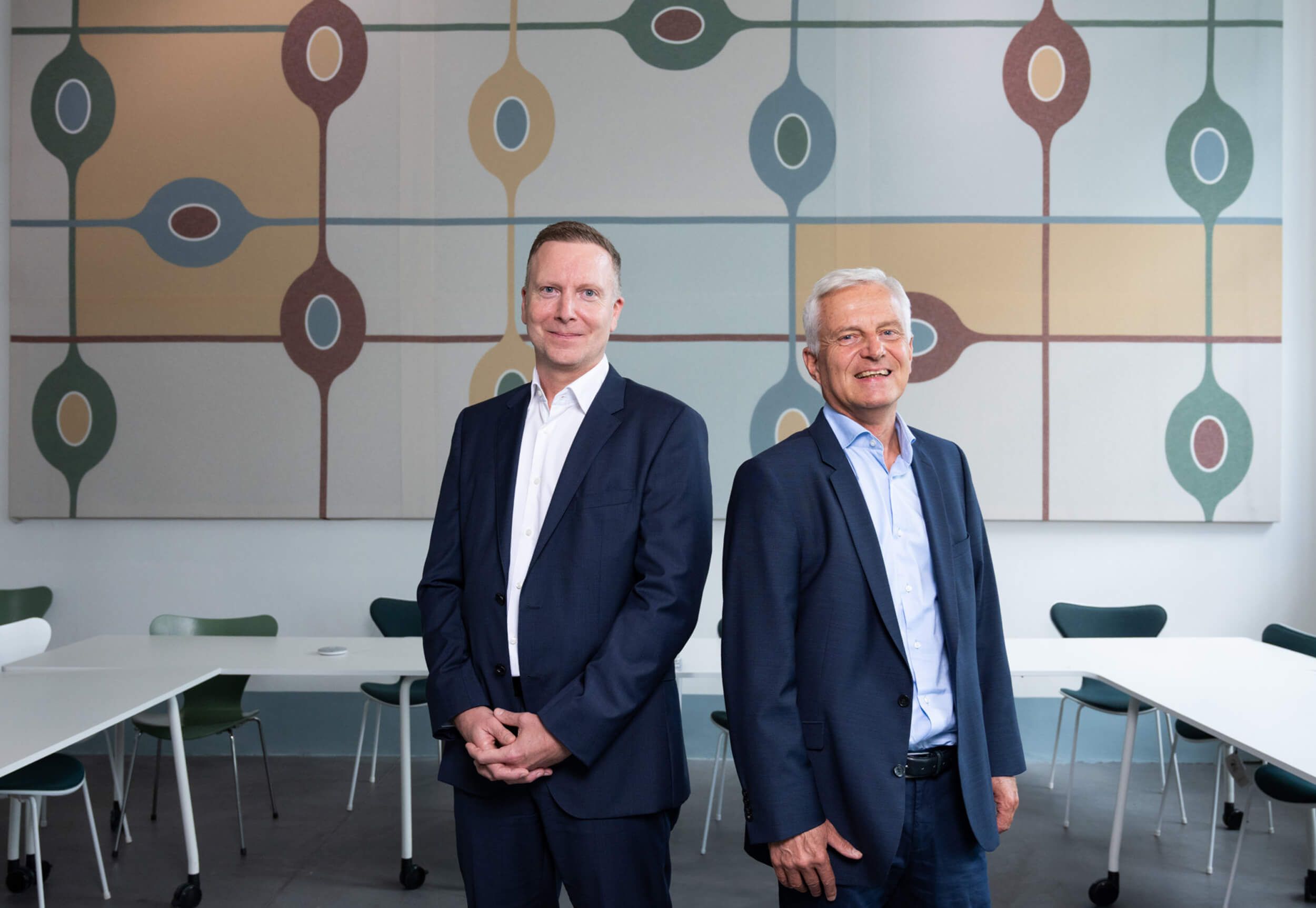
«Warren Buffett is not a role model for me»
Asset manager Pirmin Hotz explains why he avoids bitcoins and banking stocks.
Let’s take a look at the next stock market year. What will 2024 look like?
Pirmin Hotz: I was afraid of this question. Like everyone else, I don’t know what the future holds, and to be honest, I’m glad about that.
And is that what you tell your clients who entrust you with their assets so they can grow?
Of course. But I also tell them that I am well versed in intelligent and scientifically proven ways of dealing with this uncertainty.
So why don’t you share some of your principles with us?
I only invest in assets that have an economic value-added process.
What is this economic value-added process?
As a Nestlé shareholder, I know that over 300,000 people work every day to produce or sell something. I benefit from the results of that work in the form of dividends, and in the long term the value of my shares also goes up because the company continually increases its profits with the capital it has. But when I buy a bitcoin, I don’t get any dividends or interest. My only hope is that someone else will pay more for it than I did. Although it’s a bit of an exaggeration, it’s similar to a Ponzi scheme. So there is no economic value-added process, and that’s why I don’t own bitcoins.
What is the next principle?
A solid diversification of investments is central to long-term stock market success. The average equity portfolio contains around 50 stocks, diversified by sector, geography and other criteria. Over the long term, this results in average returns of seven to nine percent per year, depending on the period considered. This is supported by analyses of historical performance since 1926, as conducted by the bank Pictet, and over a period of 122 years, as done by the three financial market historians Elroy Dimson, Paul Marsh and Mike Staunton.
The Swiss stock exchange underperformed in 2023, mainly due to Roche. It seems that some risks cannot be diversified away.
Your example shows very well why good diversification is important. Precisely because we don’t know which stocks will perform best next year, it’s important to diversify risks. If we knew that Novo Nordisk and Eli Lilly were going to outperform all other pharmaceutical stocks again next year, then of course we would focus on those two and ignore Roche, Novartis, Pfizer or Merck.
But you don’t do that and see lower returns.
No, we don’t, because maybe Roche or Novartis will be the drivers of returns in the future. In any diversified portfolio, there will also be stocks that perform poorly. But take the example of Martin Ebner. He was very successful in the 1990s with his strategy of investing in very few stocks. I met him three or four times in Zurich. He laughed at my rigorous diversification approach. He told me: We know exactly what equities to buy. We buy three or four stocks – Roche was one, ABB was another – that we know so well that we always have an advantage on the market and are better.
Then Ebner almost went bankrupt.
Exactly. The dotcom bubble burst in 2001. That same year, in September, there was a terrorist attack on the World Trade Center in New York. Markets fell by more than 40%. Martin Ebner lost everything – for two reasons: Because he did not diversify his investments and because he used too much borrowed capital. Ebner’s example proves that every guru eventually falls victim to overconfidence.
When does an investor overestimating himself?
This is the main reason why I like to say that I am a science-based portfolio manager. I wrote my doctoral thesis on the portfolio theory of Harry Markowitz, who recently died at the age of 95. Many people today laugh at this theory, which essentially says that markets are incredibly fast and efficient at processing new information and incorporating it into the prices of stocks, bonds and all other exchange-traded securities. Because this happens so quickly, even professionals are always late to the party.
But a professional isn’t really a professional if he’s always late.
Well, we have to live with it. The Ebners and all the hedge fund managers in the world, who all enjoy more or less guru status, wake up in the morning thinking they know more than anyone else. Markowitz taught me humility at an early age. I saw how each bank tried to outshine the others with the best analysts, products and forecasters. I learned to expose this as hubris, and I now know that this is a common trait among supposed gurus.
Warren Buffett is a guru too, but a successful one.
You’re right. Warren Buffett is indeed a legend. But Buffett is still not a role model for me – even less so today than in the past. Firstly, he invests almost exclusively in US stocks. Secondly, he has a significant weighting in insurance and banking equities. And thirdly, his investment in Apple accounts for about half of his total portfolio. This goes completely against my principles. Even Apple is not invulnerable.
Does diversification mean you have to buy equities in companies or industries you don’t like?
No. There are also exclusion criteria. About ten years ago, we decided to stop holding airline, automobile and banking equities. We had to admit that these industries could not compete with the market average in the long term. These are industries where competition prevents the creation of long-term shareholder value.
UBS acquired Credit Suisse at a bargain price. Are you not missing a great opportunity?
We avoid banking stocks because we are convinced that the industry will again collectively face collapse in the next crisis. Banks are undercapitalised. I am also suspicious of the whole bonus system in the big banks.
The Swedish investment firm Cevian predicts that UBS’s share price will double.
Of course, UBS now has a great opportunity to absorb a lot of Credit Suisse’s business. But Cevian is no reason for us to take a stake. Activist investors are speculators; we do not speculate, we invest for the long term. UBS will have to prove that the Credit Suisse acquisition was a great success.
What about individual company shares? How long will you watch them fall?
It is much harder to make such decisions than to avoid an entire sector. General Electric was an icon of the US stock market into the 1990s. Everyone had to own it – including us. But then it started to decline. It was extremely difficult to sell, because the lower a stock falls, the greater the potential for a recovery. But these moments can be deceptive because the risk is extremely high. Not every turnaround works as well as it did at ABB more than 20 years ago. Someone who invests in a stock that has lost 80% of its value is essentially behaving like a gambler who bets on red or black at the roulette table.
You don’t just invest in equities, you also invest in bonds, for example. How do you see the problem of government debt?
We are very concerned about the high levels of debt around the world, especially as they continue to rise. Japan, the US, Italy – the budgets of many developed countries need to be restructured. I can no longer buy bonds from such highly indebted countries with a clear conscience.
Will we emerge unscathed?
No. At some point, taxpayers will have to shoulder these mountains of debt. And even the companies in which we invest will not emerge unscathed from the next debt crisis. But I still feel much more comfortable investing in companies than giving money to countries that I know are hopelessly over-indebted.
So what will Swiss equities do in 2024?
I am and remain optimistic. Swiss companies as a whole are very solid and generate good profits for their shareholders. Moreover, as interest rates have risen, equity valuations have fallen. This is a solid foundation.
Author
Daniel Zulauf (External)
Profile
Dr. Pirmin Hotz,
wrote his dissertation at the University of St. Gallen on the portfolio theory of Harry Markowitz, who won the Nobel Prize in 1990. Many banks in Switzerland and Germany were receptive to the modern theory and hired the young PhD student from Zug to train their client advisors. In 1986, he founded his eponymous investment advisory firm, which now employs 25 people. In 2021, he wrote a wide-ranging book on investment strategies entitled Über die Gier, die Angst und den Herdentrieb der Anleger (Finanzbuch Verlag, Munich). Pirmin Hotz is the father of three grown-up children.

- Diversification
- Long-term
- Forecasts







